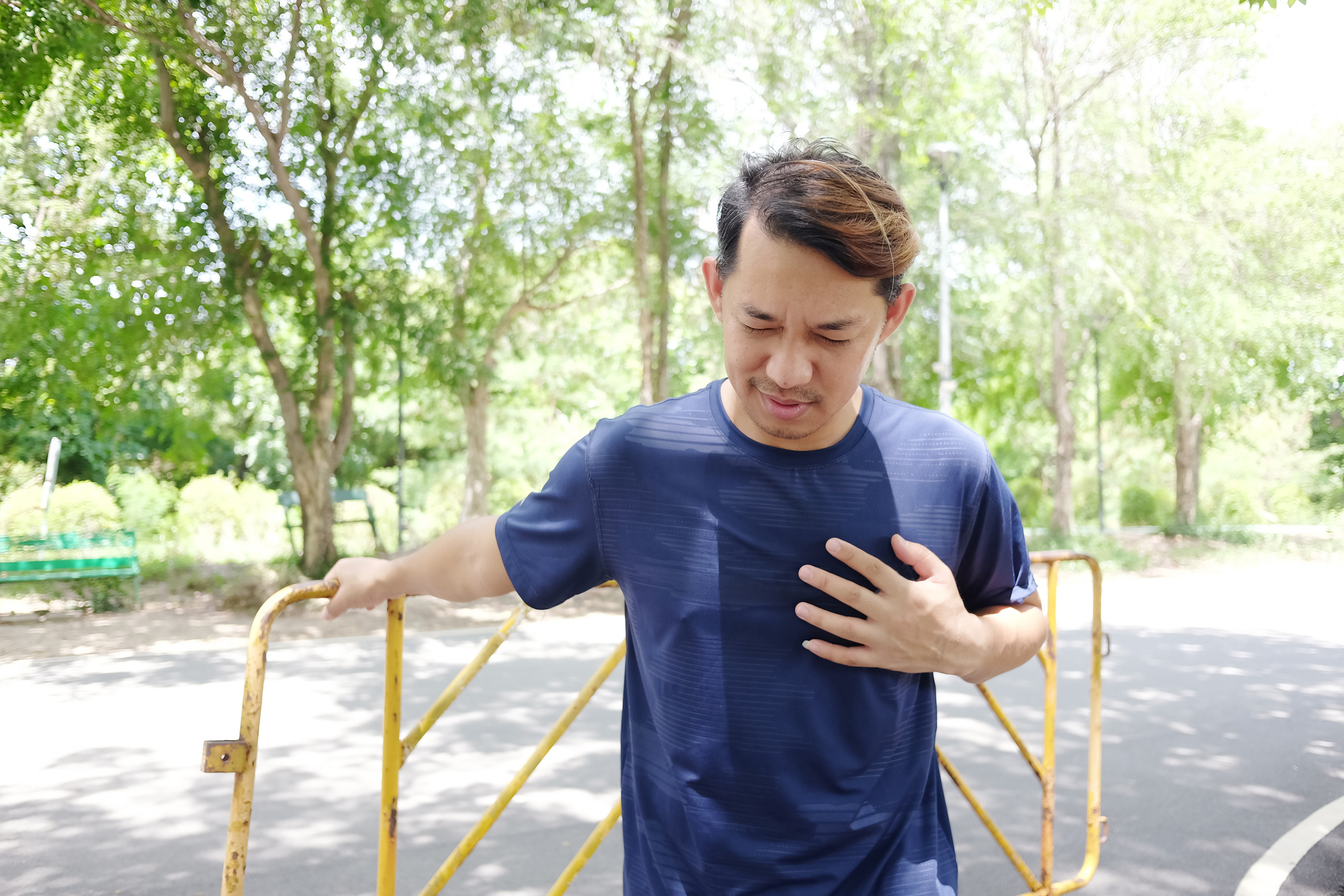Get Easy Health Digest™ in your inbox and don’t miss a thing when you subscribe today. Plus, get the free bonus report, Mother Nature’s Tips, Tricks and Remedies for Cholesterol, Blood Pressure & Blood Sugar as my way of saying welcome to the community!
Mental or physical stress: Which is worse for the heart

High blood pressure. High cholesterol. Diabetes.
These are all major risk factors for heart disease — along with smoking, obesity, and living a sedentary lifestyle.
But more and more research is pointing to another candidate that may be a bigger trigger for heart attack than any of the risk factors mentioned above: mental stress
It’s may seem shocking, but it’s true. Mental stress is far more dangerous to your heart than physical stressors could ever be…
Mental stress deprives your heart of blood
A study published in November in the Journal of the American Medicine Association (JAMA) looked at people with underlying heart disease and compared how their bodies reacted to both physical and mental stress.
The 918 study participants were given physical and mental stress tests. Researchers monitored whether each person developed myocardial ischemia during either or both forms of stress.
Myocardial ischemia is a significant reduction in blood flow to the muscles of the heart and can trigger a heart attack.
Once these evaluations were done, the researchers followed these people for at least four years, and for as long as nine years.
Participants who experienced ischemia during a test of emotional stress were found to be more likely to suffer a heart attack, and to die of a heart attack, during the follow-up period.
Mental stress causes more heart attacks
An earlier study (2004) known as the Interheart study, also showed that psychological stress is an independent risk factor for heart attacks.
The study evaluated the relationship between risk factors and heart disease in 24,767 patients from 52 countries.
Patients who experienced a high level of psychological stress during the year before they entered the study were more than twice as likely to suffer a heart attack during an average follow-up of five years, even when traditional risk factors were taken into account.
How stress damages the heart
Dr. Michael T. Osborne, a cardiologist at Massachusetts General Hospital, says that modern medicine has been neglecting a very real hazard to heart health.
Dr. Osborne worked alongside a team of experts at Mass General to analyze just how the body reacts to psychological stress.
The chain of events starts in the amygdala, the brain’s fear center.
The amygdala activates the “fight-or-flight” response, which in turn releases hormones that, over time, can increase blood pressure, body fat, and insulin resistance.
This cascade of bodily reactions causes inflammation of the arteries, makes blood clotting more likely, and promotes atherosclerosis, or hardening of the arteries.
Atherosclerosis, of course, is an underlying factor in most heart attacks and strokes.
Minimizing stress
There is a range of simple practices that can help control the way you respond to stress in your life.
Here are a few ways:
Change your perception of stress. Often the way the body physically reacts to stress is similar to how it reacts to exercise… a pounding heart and rapid breathing. Both Dr. Terry Wahls and EHO contributor Craig Cooper have written about taking your stress and letting it work for you and how a shift in perspective can turn stress into a challenge.
Meditation represents one of the most well-known methods of stress relief. A review of meditation studies shows Transcendental Meditation can reduce blood pressure, improve heart structure, reduce stress hormones, clear arteries, and ease anxiety and depression. Here are some ways to get started.
Reduce stress through diet. Start with adding green leafy vegetables to your diet. Most of them are rich in folate, the nutrient that helps your body manufacture transmitters, like serotonin and dopamine, that help regulate mood.
Consider stress-reducing supplements, including:
- Vitamin D3 – The sunshine vitamin has been shown to protect neural integrity in brain areas implicated in stress response and mood regulation. Signs of deficiency include mood changes and feelings of hopelessness and anxiety. It’s easy to see how it would be hard to react to any stressor in a healthy way if vitamin D levels are low. Low levels have also been associated with high blood pressure and diabetes — also contributors to heart problems.
- Ashwagandha Root – This ancient Ayurvedic herb has been shown to help with stress management, healthy cortisol (stress hormone) production, energy levels, hormone production and strengthening the adrenals, which produce the hormones that control your stress response.
- Rhodiola Rosea Extract – This adaptogen herb contains an active compound called Rosavin that’s been shown to help lower cortisol.
- Holy Basil Powder – This adaptogen herb helps support healthy cortisol levels, reduce anxiety, and boost your mood.
- L-Theanine – Found in tea and featured in Chinese medicine for over 5,000 years, L-Theanine is an amino acid prized for its ability to support healthy sleep, relaxation and a calm mind.
Editor’s note: Are you feeling unusually tired? You may think this is normal aging, but the problem could be your master hormone. When it’s not working, your risk of age-related diseases skyrockets. To reset what many call “the trigger for all disease” and live better, longer, click here to discover The Insulin Factor: How to Repair Your Body’s Master Controller and Conquer Chronic Disease!
Sources:
Stress May Be Your Heart’s Worst Enemy — NY Times














